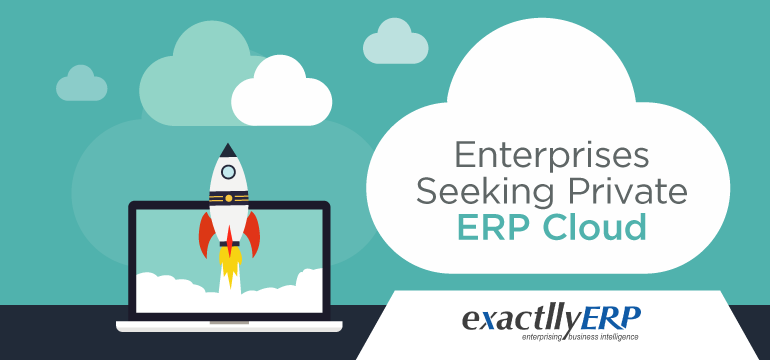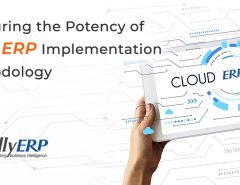While there is momentum in the market regarding public cloud ERP platform, many enterprises still prefer to have a private cloud platform. This is specifically true for mid-market and large organizations that have tremendous data storage requirements and have a lot of sensitive business information.
Customers choosing private cloud do so to ensure that their data is not shared on open public platforms. It provides them with more information security, privacy and control over their data. Each customer has its own database and highly scalable infrastructure. Like public cloud customers, by choosing a cloud platform, customers can offload technical support, maintenance, monitoring, servers, operating systems, and databases.
Public and Private Cloud Vendors:
Despite the luring benefits offered by private cloud platforms, there are certain challenges faced by cloud vendors. Before opting for a private cloud, customers should carefully analyze their requirements and alignment with the provider’s goals.
Public cloud vendors make a significant amount of investment in software and infrastructure to keep pace with the demands of the market. Third-party software vendors are able to gain benefits by making applications that function and can be integrated with other applications on public clouds. The investment of public cloud vendors is obviously funded by the renters of their platforms making it easier for them to develop a robust platform and upgrade its capability frequently.
The security concerns are also mitigated as owing to a large customer stake on the platform, public cloud providers will never take security concerns lightly. Third-party software developers build applications that can be easily operated on their cloud and their capability can be enhanced from time to time.
On the contrary, there are private cloud vendors who have a command in the cloud market and afford to provide a robust platform for their selected customers. Security arrangements are up-to-mark to match the public cloud. But the same does not hold true for other small private cloud providers. They can provide a cloud but providing a robust environment and security becomes a challenge for them. They have to work out their cost depending upon the customers they have. Small private cloud providers fail to provide robust software development tools for third party vendors.
Advantages of Private Cloud Vendors:
Enterprises seeking cloud providers have an advantage as well. Private cloud providers can offer a great degree of customization to suit their customers’ needs. If an enterprise is choosing to adopt a private cloud, it should conduct a comprehensive analysis of its business including its future requirements. The analysis will allow them to determine what kind of cloud vendor they need.
The vendor should be able to take care of all their business requirements. The enterprise should seek information about the R&D investment of the vendor. Whether the vendor has plans to develop a platform, enhance ERP functionality or develop its own set of applications, the enterprise must be fully aware of the long-term consequences of associating with the cloud vendor.
Looking Forward:
Nonetheless, the enterprise seeking private cloud enjoys the advantage of having an individual database with complete control over data. They can independently determine the application, platform and infrastructure set up. The software is under control as users can decide when to upgrade it. Furthermore, there are dedicated servers and guaranteed resources without comprising the speed and operation of the system.
Feel free to Contact Us and get a Free Demo.





Leave a Reply